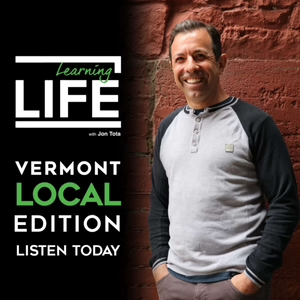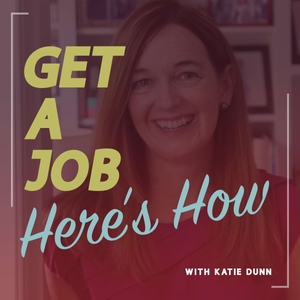
Surviving Triple Negative Breast Cancer and Giving Back to Help Others
03/06/25 • 31 min
1 Listener
Dinah McClymonds shares her journey with triple negative breast cancer and how regular mammograms detected her condition. She elaborates on her 2016 diagnosis and subsequent chemotherapy, surgery, and radiation, until she completed treatment a year later. Dinah had a positive experience with the medical care she received but acknowledges that many women lack such access.
Her conversation with Dorothy highlights that early detection can significantly impact outcomes, even for those without a family history of the disease. She stresses the importance of mammograms and the need for broader access to these screenings, especially for uninsured women.
Dinah also touches on her role as the chair for the 2025 Everything’s Coming Up Roses Luncheon supporting The Rose. Her background in fundraising and volunteering shapes her efforts to increase awareness and resources for those in need.
Subscribe to Let’s Talk About Your Breasts wherever you get your podcasts and consider making a donation at therose.org.
Key Questions Answered
1.) What prompted Dinah McClymonds to discuss breast cancer treatment and medical care?
2.) When and how was Dinah McClymonds's breast cancer diagnosed?
3.) How did her age and ethnicity influence her breast cancer treatment and prognosis?
4.) Did Dinah inform her family about her diagnosis, and how did genetic testing play a role for her identical twin?
5.) What is Dinah's message regarding early breast cancer detection and access to treatment?
Timestamped Overview
00:00 Dinah to chair 2025 breast cancer luncheon.
03:33 Involvement in volunteer work with Kappa Alpha Theta.
09:06 Access to breast cancer treatment varies widely.
10:39 Challenging cancer diagnosis disrupts vacation plans.
14:06 Mammogram detected breast cancer, no symptoms noticed.
18:00 Unexplained triple negative, not hormonal, just fluke.
21:59 Effects of breast cancer treatment on body.
23:43 Accepting aging and medical treatment's inevitable impact.
29:04 Supporting access to early cancer detection and treatment.
30:11 Thank you for being our chair today.
See omnystudio.com/listener for privacy information.
Dinah McClymonds shares her journey with triple negative breast cancer and how regular mammograms detected her condition. She elaborates on her 2016 diagnosis and subsequent chemotherapy, surgery, and radiation, until she completed treatment a year later. Dinah had a positive experience with the medical care she received but acknowledges that many women lack such access.
Her conversation with Dorothy highlights that early detection can significantly impact outcomes, even for those without a family history of the disease. She stresses the importance of mammograms and the need for broader access to these screenings, especially for uninsured women.
Dinah also touches on her role as the chair for the 2025 Everything’s Coming Up Roses Luncheon supporting The Rose. Her background in fundraising and volunteering shapes her efforts to increase awareness and resources for those in need.
Subscribe to Let’s Talk About Your Breasts wherever you get your podcasts and consider making a donation at therose.org.
Key Questions Answered
1.) What prompted Dinah McClymonds to discuss breast cancer treatment and medical care?
2.) When and how was Dinah McClymonds's breast cancer diagnosed?
3.) How did her age and ethnicity influence her breast cancer treatment and prognosis?
4.) Did Dinah inform her family about her diagnosis, and how did genetic testing play a role for her identical twin?
5.) What is Dinah's message regarding early breast cancer detection and access to treatment?
Timestamped Overview
00:00 Dinah to chair 2025 breast cancer luncheon.
03:33 Involvement in volunteer work with Kappa Alpha Theta.
09:06 Access to breast cancer treatment varies widely.
10:39 Challenging cancer diagnosis disrupts vacation plans.
14:06 Mammogram detected breast cancer, no symptoms noticed.
18:00 Unexplained triple negative, not hormonal, just fluke.
21:59 Effects of breast cancer treatment on body.
23:43 Accepting aging and medical treatment's inevitable impact.
29:04 Supporting access to early cancer detection and treatment.
30:11 Thank you for being our chair today.
See omnystudio.com/listener for privacy information.
Previous Episode

What Drives a 25-Year Commitment to The Rose?
Brahana Marksberry's 25-year career at The Rose highlights her commitment to helping women navigate complex healthcare systems. Starting as an office manager more than two decades ago, she grew to become a vital figure, especially with assisting the uninsured.
Brahana’s role ensures women receive the care they need, despite the challenges they may face within Texas’ healthcare system.
Key Questions Answered
1.) Who is Brahana Marksberry, and what role does she play at The Rose?
2.) How long has Brahana Marksberry been with The Rose?
3.) What is the function of the patient navigation program at The Rose?
4.) How many uninsured patients are diagnosed with breast cancer at The Rose annually?
5.) How does The Rose differ from navigators in hospital systems?
6.) What challenges did Brahana Marksberry face during the COVID-19 pandemic at The Rose?
7.) What personal impact has Brahana Marksberry experienced from working at The Rose?
Timestamped Overview
00:00 "Empowering Breast Health Podcast"
05:14 Uncertain Access to Healthcare Assistance
09:41 Community Fundraising Initiative
11:42 Pink Goat Society's Heartfelt Donation
15:39 Aiding Homeless in Freezing Cold
18:07 Patient Support During Diagnosis
21:45 "Reflecting on Changing Dress Codes"
See omnystudio.com/listener for privacy information.
Next Episode

Supporting the One You Cherish Through Cancer (Part 1)
David Holmes shares the multifaceted journey of his wife Heather's cancer diagnosis and their move to the United States, highlighting healthcare system differences and the emotional rollercoaster of caregiving. Throughout Heather’s battle with triple negative breast cancer, the couple balanced reality with hope, even amidst challenging treatments and family life.
Ultimately, their experience underscores the holistic approach Heather championed as a specialist nurse, focusing on quality and meaning in every moment.
Key Questions Answered
1.) How did David Holmes and his wife Heather come to live in the United States?
2.) What was Heather's professional background before moving to the U.S.?
3.) What were the initial circumstances surrounding Heather's cancer diagnosis?
4.) How did the healthcare systems in the UK and the US differ according to David Holmes?
5.) What type of cancer was Heather diagnosed with, and what challenges did it present?
6.) How did David Holmes and Heather cope with the initial news of Heather’s cancer diagnosis?
7.) What difficulties did being a caregiver present, according to David Holmes?
8.) How did David and Heather communicate Heather's diagnosis and prognosis to their children?
9.) How did Heather's nursing background impact her approach to cancer treatment and care?
Timestamped Overview
00:00 Career Shift Sparked by Chance Meeting
04:58 "Navigating Breast Cancer Uniquely"
08:22 Embracing Denial in Mexico
10:09 Marriage and Terminal Illness Challenges
14:23 Telling Children About Mother's Illness
16:25 The Challenges of Cancer Treatment
21:46 Cancer: A Battle and Care Journey
26:04 Heather's Journey: Balancing Life and Chemo
27:42 Heather's Holistic Patient Care Approach
31:10 Heather’s Transformative Nursing Insight
34:46 Coping After Loss: Odd Challenges
See omnystudio.com/listener for privacy information.
If you like this episode you’ll love
Episode Comments
Generate a badge
Get a badge for your website that links back to this episode
<a href="https://goodpods.com/podcasts/lets-talk-about-your-breasts-249206/surviving-triple-negative-breast-cancer-and-giving-back-to-help-others-86813533"> <img src="https://storage.googleapis.com/goodpods-images-bucket/badges/generic-badge-1.svg" alt="listen to surviving triple negative breast cancer and giving back to help others on goodpods" style="width: 225px" /> </a>
Copy




